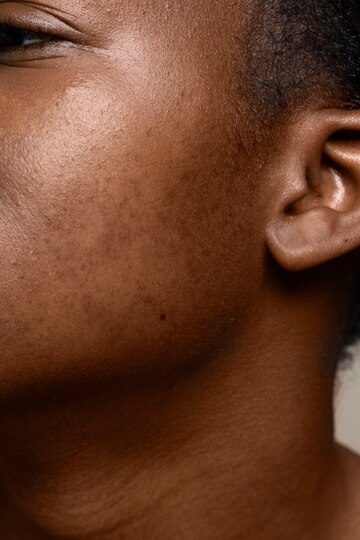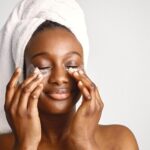Acne and hyperpigmentation are common skincare concerns that can affect individuals of all ages and skin types. In South Africa, where diverse environmental factors and skin tones come into play, addressing these concerns requires a tailored approach. In this article, we’ll explore effective strategies for treating acne and hyperpigmentation, taking into account the unique challenges and characteristics of South African skin.
Understanding Acne in South African Skin:
- Climate Considerations:
- Adapting to Weather: South Africa’s varied climate can impact acne. In humid regions, individuals may experience increased oil production, while dry climates can lead to dehydrated skin. Adjusting your skincare routine based on the local climate is crucial.
- Sun Sensitivity:
- Sunscreen is Non-Negotiable: South Africa’s intense sun can worsen acne scars and hyperpigmentation. Regular use of a broad-spectrum sunscreen with high SPF is essential to protect the skin and prevent further darkening of pigmented areas.
- Hormonal Factors:
- Consulting Healthcare Professionals: Hormonal imbalances can contribute to acne. Consulting with healthcare professionals, such as dermatologists or endocrinologists, can help identify and address hormonal factors underlying acne.
Effective Acne Treatment Strategies:
- Gentle Cleansing:
- Avoid Harsh Cleansers: Opt for gentle, non-comedogenic cleansers that won’t strip the skin of its natural oils. Harsh cleansers can exacerbate acne and contribute to inflammation.
- Hydration is Key:
- Balanced Moisturization: Keep the skin hydrated with non-comedogenic moisturizers. Proper hydration helps maintain the skin barrier and can aid in preventing excessive oil production.
- Topical Treatments:
- Salicylic Acid and Benzoyl Peroxide: Incorporate topical treatments containing ingredients like salicylic acid and benzoyl peroxide. These can help unclog pores, reduce inflammation, and target acne-causing bacteria.
- Prescription Medications:
- Consulting a Dermatologist: For severe acne, prescription medications like retinoids or oral antibiotics may be necessary. Consulting a dermatologist allows for a personalized treatment plan tailored to your skin’s needs.
Addressing Hyperpigmentation:
- Gentle Exfoliation:
- Alpha Hydroxy Acids (AHAs): Incorporate AHAs like glycolic or lactic acid for gentle exfoliation. Regular exfoliation helps fade dark spots and promotes skin renewal.
- Brightening Agents:
- Vitamin C: Use vitamin C serums to brighten the skin and reduce hyperpigmentation. Vitamin C is known for its antioxidant properties and its ability to inhibit melanin production.
- Retinoids:
- Retinol or Prescription Retinoids: Retinoids promote cell turnover, aiding in the fading of dark spots and promoting a more even skin tone. Start with lower concentrations and gradually increase as tolerated.
- Protective Measures:
- Sunscreen, Sunscreen, Sunscreen: Sun protection is paramount when addressing hyperpigmentation. UV exposure can exacerbate dark spots and hinder the progress of treatment. Reapply sunscreen throughout the day.
Holistic Approaches:
- Nutrition and Hydration:
- Balanced Diet: A nutrient-rich diet contributes to overall skin health. Antioxidant-rich foods, vitamins, and hydration play a crucial role in supporting the skin’s healing process.
- Stress Management:
- Mind-Body Connection: Stress can exacerbate acne. Incorporate stress-management practices like meditation, yoga, or deep breathing exercises to promote overall well-being.
Addressing acne and hyperpigmentation in South African skin requires a multifaceted approach that considers environmental factors, skin tones, and individual characteristics. By adopting a tailored skincare routine, incorporating effective treatments, and embracing holistic approaches, individuals can navigate the journey towards clear and radiant skin. Consulting with skincare professionals ensures personalized guidance, helping you achieve the best results for your unique skin concerns.








